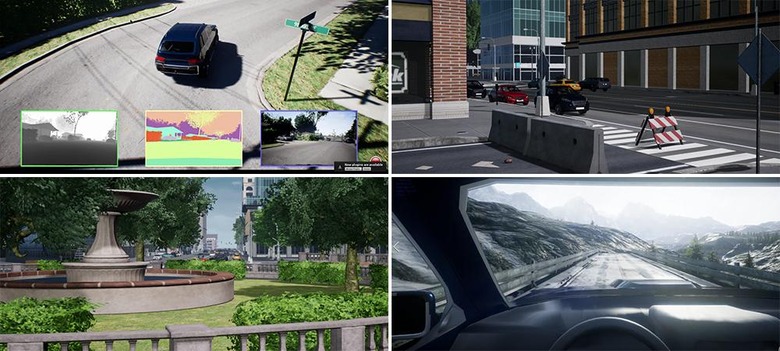Microsoft Garage Project Road Runner Trains Self-Driving Cars
Self-driving cars is a hot topic these days, eclipsed only by the recent Facebook drama. And because of the deaths involved, it has become an emotional one as well. While the incidents should encourage the industry to take stock of its technology, it shouldn't cause development and research to come to a grinding halt. Especially when the side hustlers at Microsoft Garage have developed a way to safely teach these autonomous driving AIs. And they're doing so with the age-old idea of simulations.
Simulation is nothing new in both tech and automotive industries. It's even used in a lot of games. Advancements in graphics technology have even made things like driving simulations look so realistic that the only thing that breaks the illusion is often the obviously fake controls. Self-driving car AI, however, has no need for those physical controls so why not use those photorealistic simulations to help train those AI.
That's exactly what the Project Road Runner team, lead by Microsoft employee Aditya Sharma did. They used the open source AirSim drone simulation platform which was built on the powerful Unreal Engine game engine for realistic graphics and animation. In a show of a symbiotic relationship and cooperation, Project Road Runner's work helped create the autonomous driving expansion that was officially released for AirSim.

Curiously, Project Road Runner's system isn't made simply to train self-driving AI directly. It is, in fact, to let the AI crash the virtual cars. This is part of the deep reinforcement learning method that Sharma and his teammates advocate. In other words, Project Road Runner gives AI a completely safe environment to learn how to drive safely by crashing repeatedly. The system enables gathering large sums of data that would have been impossible in the real world given the scarcity of self-driving cars and the safety considerations of driving them on real-world roads.
As a skunkworks project, Road Runner is unlikely to become a commercialized product. But Microsoft, who had no hand in its development or funding, could very well turn it into the foundation of future autonomous driving software. That is, should it decide to actually jump into that arena.
